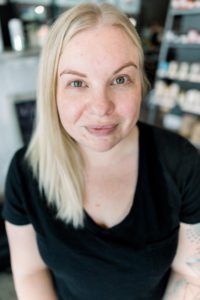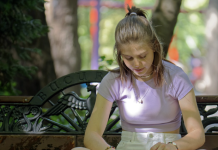 A decade ago in July I left a narcissist sociopath who singlehandedly wrecked every good thing I’d built for myself in my twenties.
A decade ago in July I left a narcissist sociopath who singlehandedly wrecked every good thing I’d built for myself in my twenties.
I was 26 years old, a high school English teacher, with nothing to my name that hot July day I drove away from his house.
No self-esteem or sense of purpose. No detectable value. I felt undeserving of rebuilding my life and literally didn’t have the energy or desire to try. There were days I didn’t get out of bed and I let my dog use the floors like a litter box. I didn’t brush my teeth or feed myself, quickly losing a lot of the weight I’d purposely gained while I was with him (to protect my body from the physical attacks). Maybe I ate; maybe I slept, but the only thing I truly wanted to do was stop existing.
More devastating for day-to-day things, my car was repossessed three days after leaving him, and then my house went into foreclosure proceedings. Plus, I was unemployed after he convinced me to work for his company. If you’ve never tried to get a job without transportation, I can attest to how impossible it can be, and when it all – the negative thoughts that screamed in my head, the constant terror that he’d come back for me, and the frustration, blame, and sadness – became too much, I started self-harming to distract myself from my pain. I watched myself bleed to know I was alive. I hit my head against the corner of my bedroom dresser to silence the screaming.
I’ve written about my story many times over the last ten years, even detailing the most heart-wrenching pieces of my story in a memoir, but it still floors me that – even now – people only ask about the abuse in the timespan of when it happened and not about the aftermath.
It feels like society assumes once you limp out of the toxicity you’re instantly healed. Like it’s not one of the most life-changing, impactful traumas, no matter how much healing you do (side note: shout out to Safe Connections for providing me with three free years of life-saving trauma therapy).
Ten years later, I’m a much different person. I’m married to the love of my life, a man who I put on a deserving pedestal, and have two beautiful, amazing babies who both turn two on November 1st (please send coffee). I’m a published author, a speaker, and a business owner, and I’m so, so proud of the work I do to help women overcome their own traumas and, yet, there are still days where I have to do the hard work of reminding myself I’m safe. I can’t remember what it’s like to go a month without something triggering fear. Yes, even after healing it. The point is, I’ve come to terms with my abuse being something I carry with me for the rest of my life. It no longer paralyzes me or even feels like a burden. I’ve grieved this, and I’ve prepared myself with incredible tools to help me cope when bad days happen.
I’m sharing this for two reasons. One, I just want to be really honest about how non-linear healing is. It’s jagged and sometimes the thoughts still burn my chest and make my eyes water, because I still get emails from people who say they know who my abuser is and that they also experienced his abuse. Sometimes these people are correct and other times they’re not, but their pain is my pain. It doesn’t have to be the same man for me to feel their experiences on a cellular level. I see it and feel it deeply, not because I haven’t healed but because once you know the depths of life’s pain you can’t un-see it.
I sometimes worry he’ll come after me since he knows about my book. I worry one more news story that reminds him will be the one that sends him straight over the edge, especially with the connections he claims to have, and I worry my kids will suffer because, long before them or their amazing father, I fell in love with a disease who posed as a safe man, one who wasn’t who he said he was.
If you’re reading this, I know it’s hard, and maybe hard to understand how someone could get involved with such a monster. And maybe you see this and think I need more therapy because of the fear I feel. Trust me, I am taking care of me and doing the hard work. I do not want to ever go down that rabbit hole again. However, the former teacher in me wants to be honest and open so we can all learn about the struggle and pain, and to educate society so – maybe – I can carry the burden of remembering to raise awareness and help someone else get out before they too feel like this.
It’s a coping tool and a silver-lining to it all.
Yes, even with an incredible support system, a husband who taught me it was okay to love again, and a life most people dream to have, I’m still impacted a decade later. That’s what abuse does to you. It’s not every day and it’s not as scary; I don’t self-harm or have panic attacks, but I still worry.
If you know a survivor, it’s okay to check in one them and see how they’re doing, even if they left their abuser years ago. To know someone cares and has your best interest in mind is an extraordinary gift when the person you once loved most stripped you of trust and worth.
Luckily, there are several amazing local nonprofits around the area that offer resources and support for the 1:4 women who are survivors of domestic violence, and to be sure you know where they are I’m providing a link to a great list of resources around St. Louis, St. Louis County, and St. Charles County.
Beyond that, talking to your children (yes, children) about healthy relationships, or requesting your school implement a program that talks about healthy relationships can open these hard conversations and teach your kids about boundaries, respect, warning signs, and what to do when someone mistreats you.
If you are currently in an abusive relationship, please call the 24 hour hotline number listed below this when and if you’re ready to get help. The people who answer are trained to help you through whatever hurdles you face while also showing you genuine empathy. There is life after abuse and it’s so much better than staying with someone who doesn’t know how to love you the way you deserve.
314.531.2003 – Safe Connections
Or











I always tell everyone the story doesn’t end when you leave. Actually, that’s where it begins. And healing from that, building your life all over again, that is absolutely the hardest part.
You can never go back to who you were before. But you have the opportunity to become something amazing.
Thank you for sharing.
Yes! I have always said that life after abuse was harder, especially because society thinks you should be alright when you walk out of the house, with “It’s over,” and “You can move on,” used in casual conversation. So when I struggled people didn’t get it, which is what was so hard for me to deal with. Even a decade later, I still feel responsible for making other people comfortable around me and avoid the difficulty of admitting I still struggle. It’s almost as if I know my trauma is too heavy to carry so I try to lighten their load by taking on more. <3
Thank you for sharing.
#theothercheek
Your babies are so blessed to have such a strong Momma who selflessly gives so that others can also heal. You are setting such a rock solid example for them, and showing the rest of us what heroism looks like. ❤
Carol, your words just made me tear up quite a bit. Thank you for that. Sometimes I worry what I’ve survived will make me an inadequate, damaging mom, and I feel guilty that my children will have to “deal” with my baggage being so public, but then I realize the constant work on said baggage has made it easier to carry and made me a better person. I hope they see in me what you just pointed out. I really, really do. <3
Comments are closed.